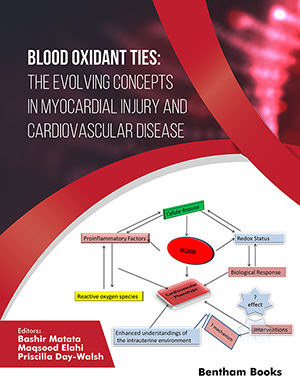Abstract
Oxidative stress and inflammation are parallel self-perpetuating
mechanisms that when triggered, appear to be strongly linked with several
complications of cardiovascular disease (CVD). Unchecked production of reactive
oxygen species (ROS) and reactive nitrogen species (RNS) are largely the responsible
factors that operate via the activation of several transcriptional messengers and a series
of inflammatory pathways. Such messengers include Nuclear Factor-KappaB, known
to contribute to a plethora of pathological complications such as endothelial
dysfunction, the initiation and progression of atherosclerosis, irreversible ischemic
reperfusion injury, and arrhythmias, particularly atrial fibrillation. Although much is
known about the link between oxidative stress and CVD, the development of direct
therapeutic interventions has remained elusive. In experimental animal models, the use
of antioxidants in the form of dietary supplements has been shown to quench
ROS/RNS or catalyse the break-up of free radical chains and has resulted in some
measure of success. However, these findings have not been able to be replicated in
human clinical trials for several different well-known agents, such as vitamin E and
beta-carotene. Many potent naturally occurring antioxidants have been exploited by
nature such as the oxygenated carotenoids (xanthophylls) and researchers have tested
several of them in their natural form in clinical trials but sadly many of them have not
translated into useful therapeutic tools. Questions, therefore, remain as to whether the
reasons may be solely the inability to find the “right” compound(s) or delivery strategy,
or the exact mechanisms of action of existing compounds have unknown targets or
whether correct dosages are used. This chapter reviews existing evidence on the thesis
that antioxidant/anti-inflammatory compounds may present an opportunity for the
development of future therapeutic agents for both cardiovascular oxidative stress and
inflammation.
Keywords: Antioxidants, Cardiovascular disease, Ischaemia reperfusion injury, Leukocyte activation, Myocardial infarction, Oxidative stress.






















